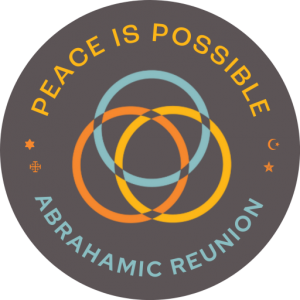David Less
March 2019
This atmosphere of violence and intolerance we are living in belongs to all human beings on the planet now. It is no longer enough to say, “Well, this is just the act of a crazy person” or “I am not like that.” We must recognize the desperate need to arrest this vibration that motivates people to commit violent acts. Where do we begin? We begin with ourselves. We need to clean up the ecology of the atmosphere that fosters and permits human violence.
When someone is weak of mind, it is easy for them to justify acts of violence because violence is so prevalent in the atmosphere that to the weak mind it is normal, not deranged. Traditionally, religion would provide the arena for us to develop a collective clarity. But in these days, religion is too often used to create greater separation, more exclusivity, and as a result, more obfuscation. The result of this is that our human community is both shocked by the violence and also accepting of it, with the excuse being “Well, I am not violent” or “What can I do?” Therefore the work begins within each of us, individually and collectively.
In our technologically connected world, it is easy to understand that what any person thinks, feels, and communicates to others can have the effect of creating permission for violence in someone with a weak or unbalanced mind. An unbalanced person, all alone, can easily hear and observe the violence espoused by politicians and religious leaders and commentators on all sides, and take it as a call promoting personal violent actions. The result of this is that our human community is shocked by the violence but also accepting of it on some level, even though we may also be very upset. As a way of dealing with it, we think, “Well, I am not violent,” or “What can I do?” or “I’m glad that’s not happening where I live.”
We need positive community action to change the very unbalanced atmosphere we now live in. We have to train our reactive selves to respond to any kind of violent communication with controlled, purposeful, and conscious peacefulness. The teaching “turn the other cheek” is not a metaphor. I believe it is urging us to train our emotions and our ego, so that violence does not become an acceptable response to someone else’s violence, whether it is a thought, a word, or an action.
Of course we feel deep pain at the global acts of violence that have become so commonplace. Because we work as peacebuilders in places of violence, we understand the level of trauma when a senseless act like the shooting in New Zealand occurs. Although prayers and condolences are helpful, and genuine, we really need to look seriously at our own local society for the future. What we do individually in terms of our own self-reflection—paying attention inwardly and outwardly in a new way—will have a huge impact on the legacy we leave. An inner ecology of active balance and peace can create a space where the necessary inspirations will arise naturally, and solutions will emerge.
 David Less
David Less
Co-Founder and US Board Chair

